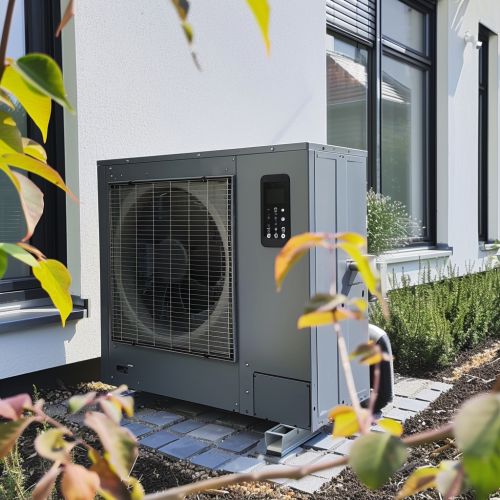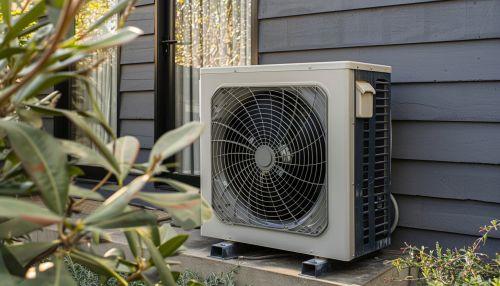Heat Pump
Overview
A heat pump is a device that transfers heat energy from a source of heat to a destination called a "heat sink". Heat pumps move thermal energy in the opposite direction of spontaneous heat transfer, by absorbing heat from a cold space and releasing it to a warmer one. This is achieved through a cycle of evaporation and condensation, driven by a compressor.
Principle of Operation
Heat pumps work on the principle of thermodynamics, specifically the laws that govern the behavior of heat energy. The basic operation of a heat pump involves the use of a working fluid, which circulates between two heat exchangers. One exchanger is at a higher temperature, while the other is at a lower temperature.


In the high-temperature exchanger, the fluid evaporates, absorbing heat from the surrounding environment. The fluid, now in a gaseous state, is then compressed, which increases its temperature further. The hot gas then circulates to the low-temperature exchanger, where it condenses, releasing its heat. The fluid, now returned to a liquid state, then returns to the high-temperature exchanger to repeat the cycle.
Types of Heat Pumps
There are several types of heat pumps, classified based on their heat source and sink. The most common types are air-source, ground-source, and water-source heat pumps.
Air-Source Heat Pumps
Air-source heat pumps extract heat from the ambient air. In heating mode, they absorb heat from the outside air and release it inside the building. In cooling mode, they absorb heat from the indoor air and release it outside.
Ground-Source Heat Pumps
Ground-source heat pumps, also known as geothermal heat pumps, extract heat from the ground or a body of water. They use the relatively constant temperature of the earth as a heat source in the winter and a heat sink in the summer.
Water-Source Heat Pumps
Water-source heat pumps extract heat from a body of water, such as a lake or a river. They can be used in areas where the water table is high and the water temperature is relatively constant throughout the year.
Efficiency and Performance
The efficiency of a heat pump is measured by its Coefficient of Performance (COP), which is the ratio of the heat output to the electrical energy input. The higher the COP, the more efficient the heat pump.
Heat pump performance can be affected by several factors, including the temperature difference between the source and sink, the type of refrigerant used, and the efficiency of the compressor and heat exchangers.
Environmental Impact
Heat pumps are considered an environmentally friendly heating and cooling solution. They do not burn fossil fuels, reducing greenhouse gas emissions. However, the electricity they use may be generated from fossil fuels, depending on the energy mix of the grid.
Applications
Heat pumps are used in a variety of applications, from residential and commercial heating and cooling to industrial processes. They can provide space heating, hot water, and air conditioning in homes and businesses. In industrial applications, they can recover waste heat and use it for heating or process needs.
